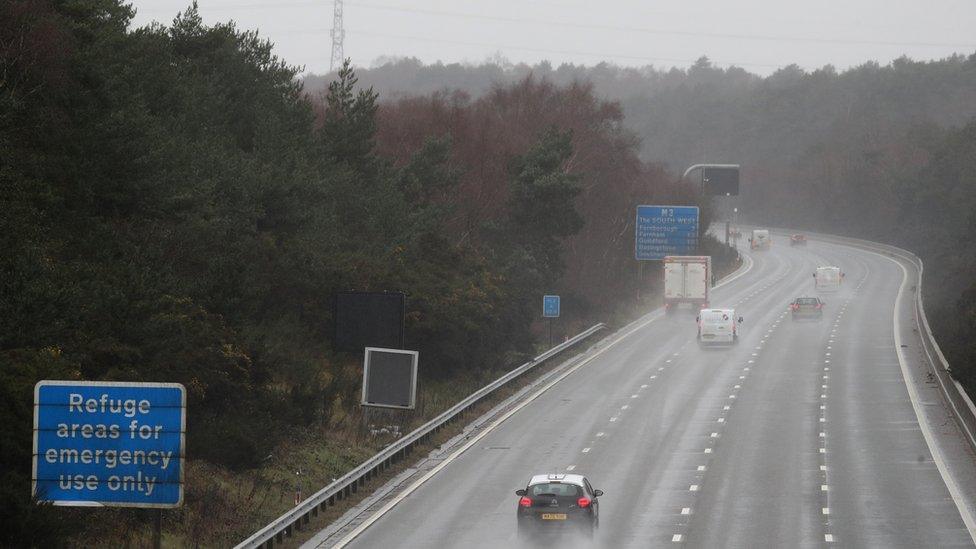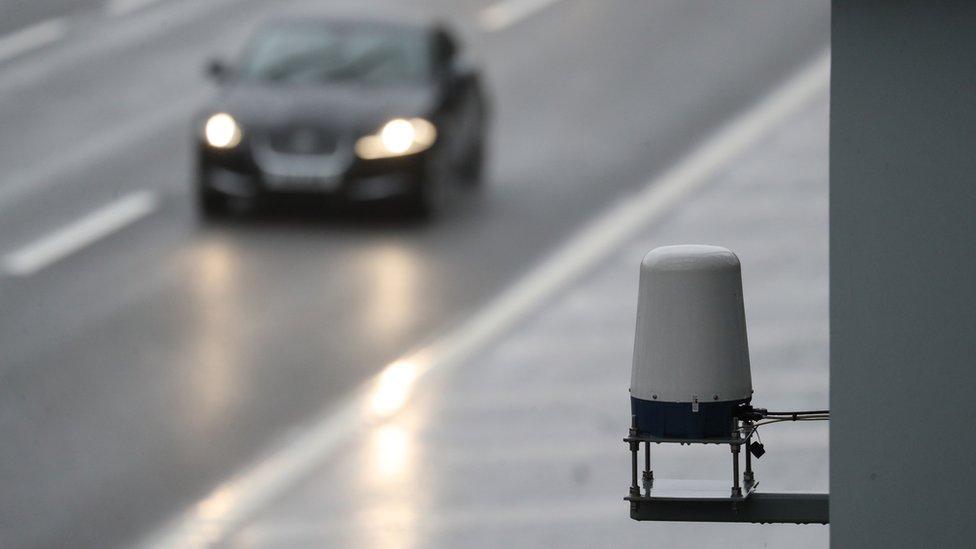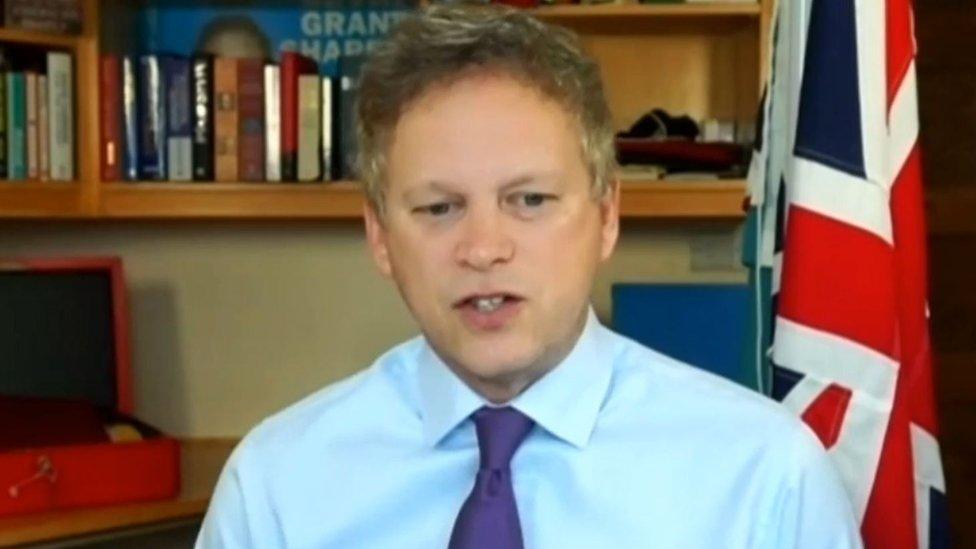Smart motorways: Safety system rollout speeded up
- Published

There are more than 500 miles of smart motorways in England
New technology to make smart motorways safer will be installed months earlier than planned, the government has said.
The roads, which have refuge areas instead of a constant hard shoulder, have been criticised after a double-fatal crash in South Yorkshire.
Transport Secretary Grant Shapps said he had ordered Highways England to speed up the installation of radar to detect stopped or broken-down vehicles.
There were no plans to scrap the smart motorway schemes, he added.
Two men died after their stationary vehicles were hit by a lorry on a stretch of smart motorway on the M1 near Sheffield in 2019.
The deaths of Jason Mercer, 44, and Alexandru Murgeanu, 22, could have been avoided if there had been a hard shoulder, a coroner said, calling for a review of the schemes.
Mr Shapps said Stopped Vehicle Detection, which uses radar to detect drivers who have broken down in live lanes, is to be rolled out across the network by the end of 2022.
The technology was originally planned to be in place across the 500-mile network by March 2023.

The radar units are installed at the side of the road and can detect stopped or broken down vehicles
It works by using sensors to detect stopped vehicles and then alerting a control room operator.
Lanes can then be closed using overhead signs and the emergency services alerted. Stationary vehicles can be detected in 20 seconds, according to Highways England.
"I've ordered Highways England to get on with it," Mr Shapps told the Commons' Transport Select Committee on Wednesday.
"Put more emergency areas in, put the stop detection in.
"They are the safest form of road, but I think they should be safer."
Mr Shapps, who said he "inherited the issue" of smart motorways, said the government couldn't "just undo" them.

Transport Secretary Grant Shapps said motorways were the safest form of road, but should be safer
"I've looked at it", he said. "It would require the equivalent land of 700 Wembley Stadium-sized football pitches to somehow undo all this.
"We'd have to buy people's homes, we'd have to destroy acres of greenbelt."
A £5m information campaign is being rolled out to educate drivers on how to drive on smart motorways and what to do if you break down, Mr Shapps added.

Follow BBC Yorkshire on Facebook, external, Twitter, external and Instagram, external. Send your story ideas to yorkslincs.news@bbc.co.uk, external.
Related topics
- Published18 January 2021
